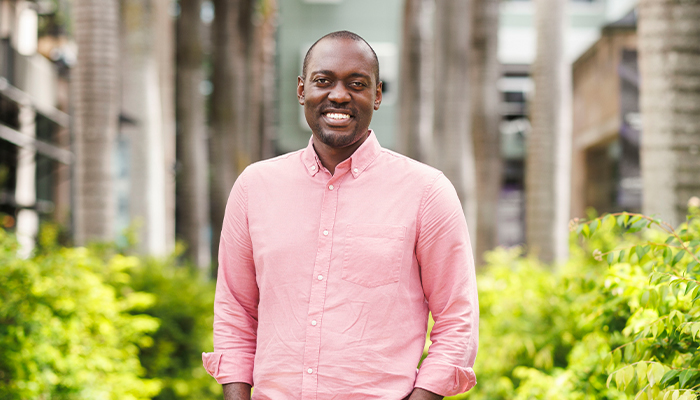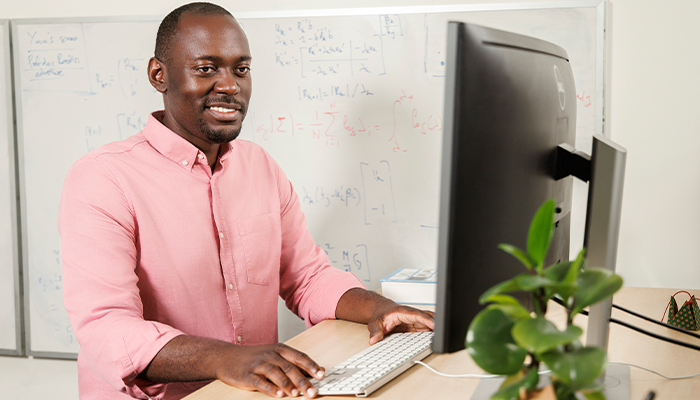Professor Loic Yengo has always been fascinated by patterns. As a child, he loved the bright fabrics that his mother, a dressmaker, would use in their home in the Republic of the Congo.
But Professor Yengo’s affinity with patterns led him in a different direction – first, to a PhD in Mathematics in France, and then to running his own research group at IMB in Australia, where he investigates the patterns found in our genome.

A landmark study to predict disease risk
Professor Yengo was awarded a Snow Medical Research Foundation Fellowship in 2024, which provides $8 million over eight years to focus on dramatically advancing the prevention of chronic diseases, including diabetes, heart disease and cancer.
“Global health systems are currently threatened by the rise of chronic diseases that, to date, cannot be permanently cured,” he says. “Therefore, our best chance of reducing their burden is to prevent their onset.”
Professor Yengo is developing technologies that use mathematical models to accurately predict an individual’s risk of multiple diseases from their unique DNA profile. This will give doctors, patients and families a unique opportunity to prevent disease decades before symptoms occur, improving patient outcomes and reducing healthcare expenditure.

“The funding will also support the acceleration of this work into the clinic, so it’s available as a tool for doctors to use when doing health checks,” Professor Yengo says.
“For example, visiting the GP in 20 years’ time might involve a simple blood test from which they can advise your risk of developing various diseases, and prevention strategies you can use.”
Improving health equity
Professor Yengo says his group will analyse DNA sequences from millions of participants, with a unique focus on increasing participation of people with diverse ancestries.
“This study, funded by the Snow Medical Research Foundation, is an extraordinary opportunity to do this work at the necessary scale, including a 10-fold increase in the representation of people with non-European ancestries in genetic health data around the world,” Professor Yengo says.
This will help overcome the bias in risk prediction that has developed from previous genetic studies, which have mostly involved individuals of European ancestry, and ensure Professor Yengo’s discoveries benefit all communities worldwide, from Brazzaville to Brisbane.

